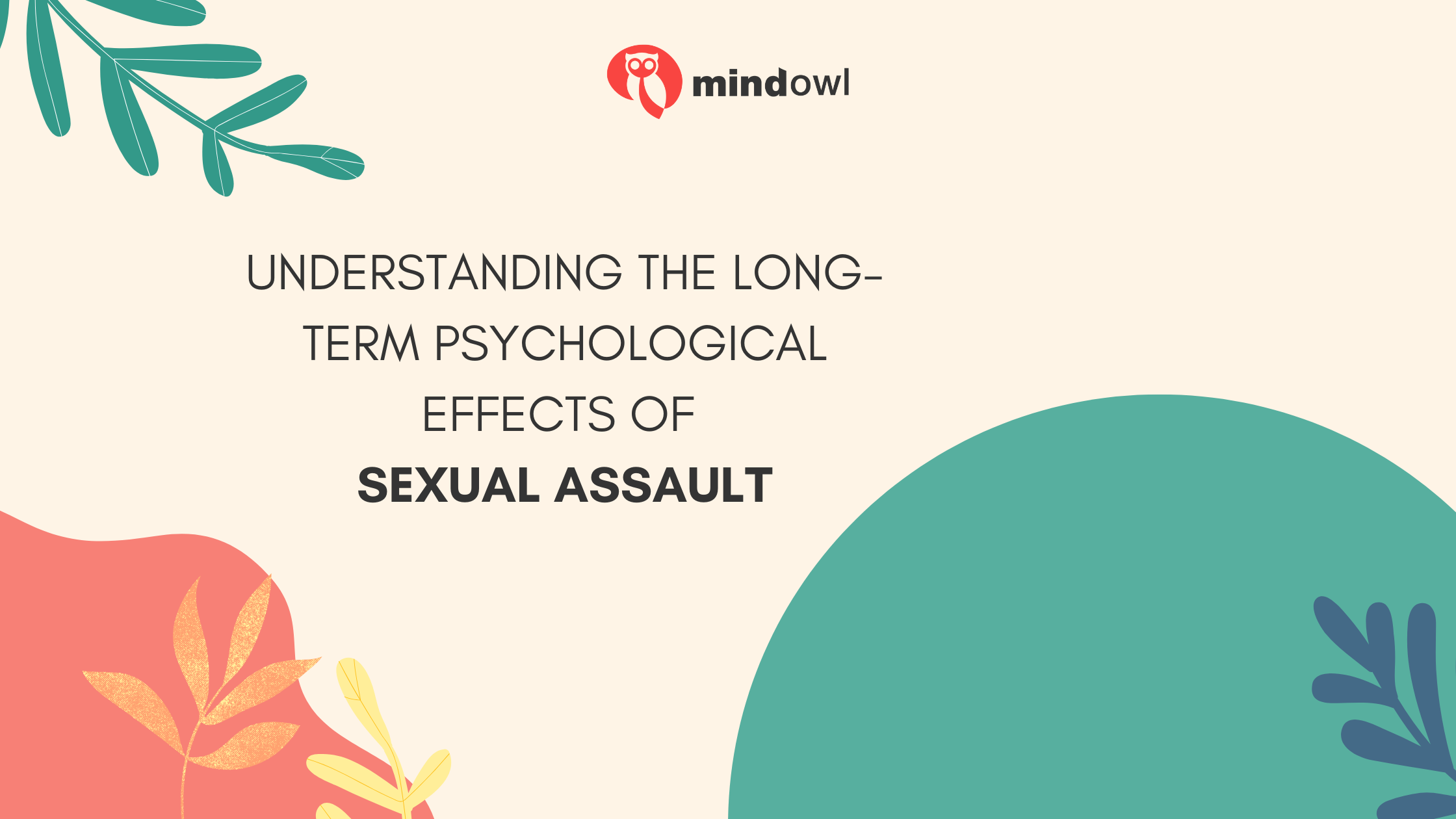
Sexual assault is bad.
The trauma experienced immediately afterward is just the tip of the iceberg for most survivors. What’s truly alarming, however…
The psychological effects often linger long after the initial attack. For example, studies have shown that 75% of sexual assault survivors have PTSD a month after the event.
Holy crap. And that number is just one month after the attack.
Survivors face more than just PTSD, though. The full gamut of mental health effects include…
- Anxiety
- Depression
- Sleep disorders
- Relationship problems
- Substances abuse
- Body image issues
The list goes on and on. But here’s something that not many people know or understand.
Sexual assault’s psychological effects don’t just show up immediately. In some cases, they can take weeks, months, or even years to fully manifest.
This is why proper legal representation matters. An experienced Denver sexual assault lawyer not only understands the criminal legal process, but also how to support a client through the difficult psychological aspects of a case.
What you’ll discover:
- PTSD and Sexual Assault: The Scary Connection
- Depression and Anxiety: Two Silent Killers
- The Mental Health Effects of Sexual Assault on Everyday Life
- Breaking the Silence: The Importance of Recognizing the Psychological Effects of Sexual Assault
- The Role of Legal Support in Addressing the Psychological Effects of Sexual Assault
In this article, we’ll dig into some of the most common, insidious, and misunderstood psychological effects of sexual assault.
PTSD and Sexual Assault: The Scary Connection
PTSD is easily the most common and well-known psychological effect of sexual assault.
In fact, the numbers are truly staggering. According to RAINN, 94% of women who are raped experience symptoms of PTSD within the first two weeks of the event.
But what does that look like?
PTSD After Sexual Assault Symptoms
Here’s the short answer. There are four categories of PTSD symptoms after sexual assault, and they include:
- Intrusive thoughts and flashbacks: Reliving the event through vivid memories, dreams, or thoughts
- Avoidance: Avoiding places, people, or things that remind the survivor of the assault
- Negative changes in thinking: Self-blame, detachment, or negative beliefs about oneself
- Hyperarousal: Feeling on edge, having trouble sleeping, or experiencing angry outbursts
The thing about PTSD is that it doesn’t have a timetable. For some people, it sets in immediately. For others, it may not fully develop for months or even years after the assault.
Same goes for the recovery process. Good days and bad days can come and go. PTSD can be an especially difficult condition to live with for this reason.
Depression and Anxiety: Two Silent Killers
PTSD and depression after sexual assault often go hand in hand. Anxiety is also common.
Symptoms of Depression After Sexual Assault
Depression is characterized by:
- Persistent sadness or hopelessness
- Loss of interest in once enjoyable activities
- Changes in appetite or sleep patterns
- Concentration issues
- Thoughts of self-harm or suicide
Anxiety Symptoms After Sexual Assault
Symptoms of anxiety include:
- Constant worry or fear
- Panic attacks
- Rapid heartbeat or sweating
- Avoidance of social situations
- Difficulty trusting others
Depression and anxiety can be especially challenging because they often feel so overwhelming. It’s like you’re drowning in your own emotions and can’t see a way out.
The two often feed off of each other, too. Depression makes everything feel hopeless, while anxiety makes you constantly fear the next bad thing that might happen.
The Mental Health Effects of Sexual Assault on Everyday Life
The psychological effects of sexual assault seep into every part of your life.
Performance at work or school may be impacted. It’s common to have concentration issues and emotional volatility following an assault.
Relationships with friends and family can suffer. Trust issues and emotional distance are normal, but they can be hard to overcome.
Physical health problems may arise. It’s not uncommon to experience chronic pain, digestive issues, or sleep disorders.
Daily activities can feel overwhelming. Bathing, cooking, driving, or anything else that was once mundane can feel like a huge hurdle.
These are just a few of the many ways in which the mental health effects of sexual assault can impact survivors. That’s why it’s so important to understand the full scope of the psychological impact.
Breaking the Silence: The Importance of Recognizing the Psychological Effects of Sexual Assault
One of the biggest hurdles to healing is the silence and stigma that still surrounds sexual assault.
So many survivors don’t seek help or support because they:
- Feel ashamed or self-blame
- Fear they won’t be believed
- Don’t recognize their symptoms as trauma-related
- Feel they will be judged
- Don’t know where to turn
Breaking the silence is so important.
The more we talk openly about the psychological effects of sexual assault, the more we normalize the experience and make it easier for people to reach out for help.
The Role of Legal Support in Addressing the Psychological Effects of Sexual Assault
It’s not just mental health treatment that’s important in these cases. Legal support can play a big role in the healing process too.
Having the right attorney is crucial. They need to be experienced and compassionate, with an understanding of trauma and how it affects people.
A good legal team will provide trauma-informed representation and know how psychological symptoms can affect testimony. They’ll also advocate for appropriate accommodations and help survivors understand their rights.
The recovery journey after sexual assault trauma is different for everyone.
Some survivors find that taking legal action is empowering and helps them regain control over their lives. Others might focus on therapy and healing in a personal capacity.
But in all cases, the key is support. With the right mental health treatment, legal assistance, and time, healing is possible.
Wrapping It Up
The mental health effects of sexual assault are real and powerful. They can completely change how survivors see themselves, the world around them, and their future.
But here’s what’s equally important to remember. Healing is possible.
With time, support, and the right treatment, survivors can heal and reclaim their lives. The psychological effects may leave scars, but they don’t have to define a person’s future.
Recovery looks different for everyone. Some people find hope in advocacy work. Others in healing relationships.
The most important thing is that survivors have support so that they can heal and move forward with hope.
MindOwl Founder – My own struggles in life have led me to this path of understanding the human condition. I graduated with a bachelor’s degree in philosophy before completing a master’s degree in psychology at Regent’s University London. I then completed a postgraduate diploma in philosophical counselling before being trained in ACT (Acceptance and commitment therapy).
I’ve spent the last eight years studying the encounter of meditative practices with modern psychology.

